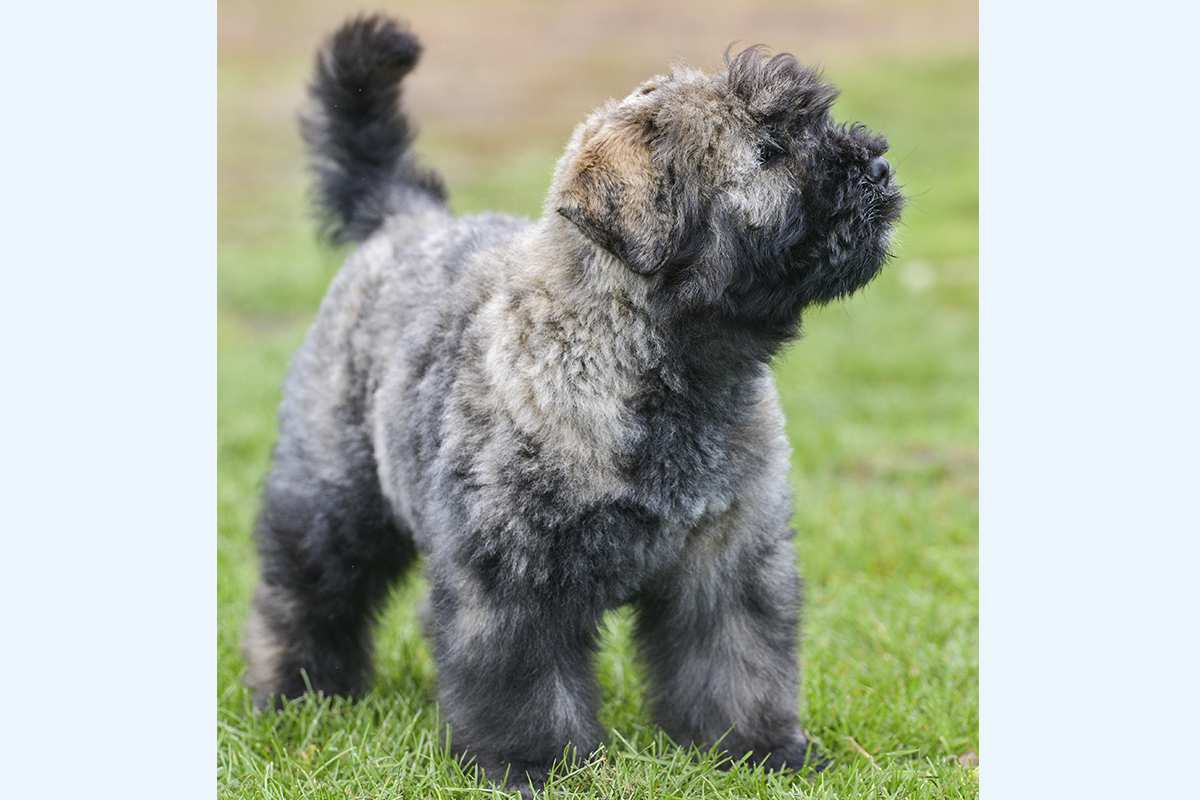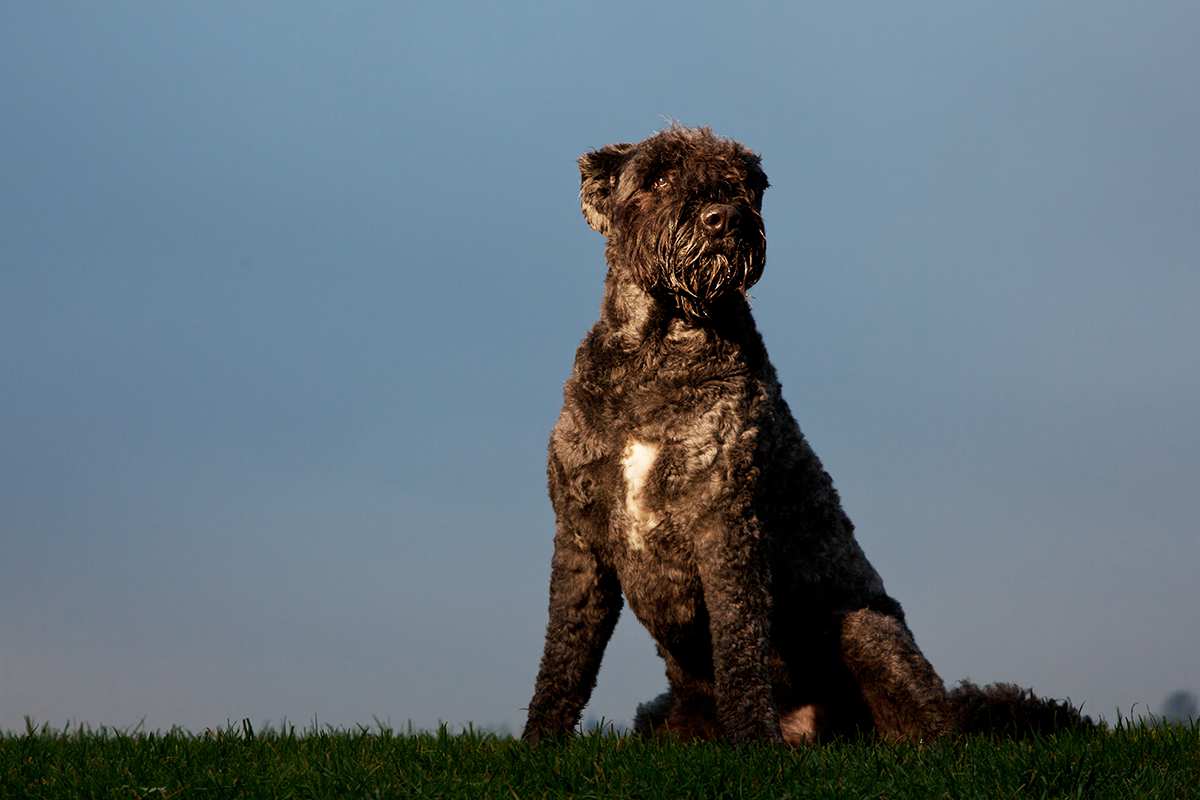Bouvier Des Flandres


 Puppy
Puppy
 Fully Grown
Fully Grown
The Bouvier Des Flandres originated in Flanders in Belgium and was used as a herding and farm dog. The true beauty of this breed lies not in their looks but in their temperament.
As a working dog they require plenty of exercise and mental stimulation. With their high willingness to please, they are easy to train, although they don’t do well with learning under pressure and will instantly shut down if yelled at. They are best to train through praise, reward and a good dose of humour.
Bouvier Des Flandres’ are true one person dogs. They will tolerate and love the rest of the family but you are likely to find that they are really attached to one person only. During the day they are happiest by your side and at night you won’t be able to escape either – if they have their way, they will be sharing your bed! They will tolerate being left home alone on some occasions, but not all the time.
Maintenance of their coats is time intense. They requires a 1-hour brush, 2-3 times a week. Grooming every 2-3 months is also a must.
| Weight: | 35-40 kg |
| Health risk: | Medium |
| Life expectancy: | 10-12 years |
| Coat: | Medium |
| Grooming intensity: | High |
| Monthly cost (food): | high |
| Trainability: | High |
| Activity level: | Medium |